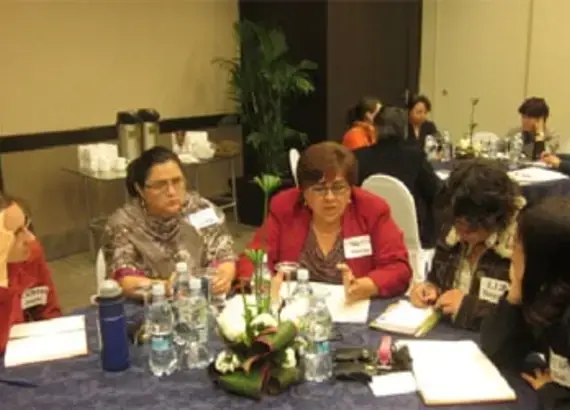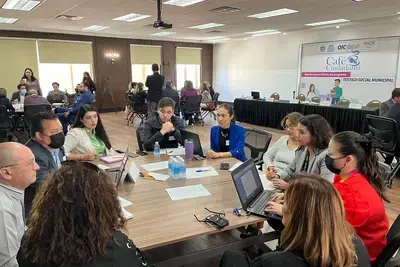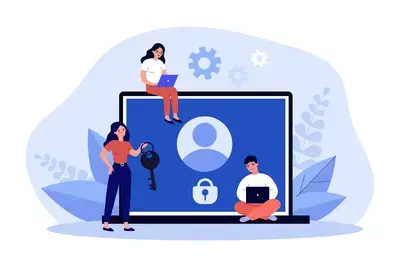
Success Story
Cleaning Hospitals, Training Legislators
By Raúl Arce-Contreras and Juliana Ferreira
Following a string of recent premature infant deaths in Ecuador that appeared to result from poor hospital hygiene, there was widespread agreement that authorities needed to act.
Nine of the deaths occurred at Francisco Ycaza Bustamante Hospital, one of the biggest hospitals in Guayaquil city, the port that is the center of Ecuador's business and manufacturing industries. There were also seven infant deaths in Isidro Ayora Hospital in the southern city of Loja, raising questions about hospital hygiene practices around the country.
Ecuador has a government-run healthcare system that gives public officials the authority to order training for health workers and research on major issues as well as specific hospital cases.
These programs may be carried out by executive branch agencies, but the National Assembly has the power to request or legislate such actions. And the fact that the legislature has authority to intervene made it a good case study for Jitinder Kohli, a senior fellow at the Center for American Progress, who conducted a training program for legislators in Quito, Ecuador’s capital, last month at the invitation of NDI.
“We chose this subject because legislators from different political organizations would agree on the need for action,” Kohli said, “and we would avoid partisan arguments dominating the session. We wanted to find a policy area through which we could demonstrate the practical value of seeking input from outside groups and citizens when developing and implementing policy.”
Ecuador, which became a democracy in 1979, still struggles to include citizens in the decision-making process and hold legislators accountable for their policies. Similarly, civic groups are figuring out how to amplify their voices on the issues they hold dear. The training program included instruction for both lawmakers and representatives of civic organizations.
For legislators, Kohli prepared a set of exercises that emphasized the importance of working closely with citizens to promote more inclusive policies and increased accountability.
The first exercise asked legislators how they would go about developing policies to improve hospital hygiene to reduce the risk of infant deaths. In the second half of the exercise, some of the legislators continued in their roles as lawmakers while others were asked to act as representatives of interest groups.
The legislators group determined that developing good policy required significant expert input from patient and medical groups to incorporate their perspectives and fully understand the nature of the problem. The civil society group made it clear that lawmakers would be held accountable for a lack of progress on the issue.
To help the legislators with their outreach, the training session also focused on communication techniques and new media tools, including Twitter and Facebook, as well as more traditional techniques, such as responding to newsletters or participating in town hall meetings.
Civic leaders, in their training, were keen to learn communications strategies for building coalitions of groups based on common issues. They also were interested in discussing how to track follow-through on elected leaders’ campaign promises to increase accountability.
Meanwhile, the legislators group emphasized the importance of including citizens’ needs in their legislative work plans, raising awareness with constituents on these issues, and promoting laws and policies to address them.
“We will intensify the interaction between elected representatives and citizens, to identify the possible mistakes and rectify them,” one legislator pledged.
The training program was funded by the British Embassy in Quito, which also hosted a reception that brought together legislators and representatives of civil society groups.
Raúl Arce-Contreras is a press assistant at the Center for American Progress. Juliana Ferreira is program assistant at NDI Ecuador.
Related:
Pictured above: Members of civil society work in groups during training.
Published May 17, 2011



